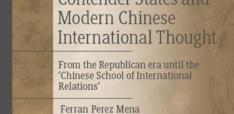It Is Not Easy Being Leader Of The World
Danny Quah asks when it may be time to look for a new global hegemon?
Some days it’s just plain stressful when the world keeps looking to you to solve its problems, to be global hegemon.
(As always, by “hegemon” I mean not evil imperialistic power, but instead what historians mean from their study of the Delian League in Ancient Greece: “benevolent leader”. A hegemon provides public goods, whether that is the defense of small Greek city states against the Persian Empire, being lender or consumer of last resort across nations, stabilising and regulating international financial markets, ensuring safety of international shipping routes, and so on. The critical point is that hegemon implies benevolence; “benevolent hegemon” is redundant. If it were otherwise then, among other things, the evocative phrase “Hegemony or Empire” would be just a meaningless and empty contrast.)
Following the 2008 Global Financial Crisis, proponents of hegemonic stability theory (HST) – the idea that the world economy is most stable when some nation is powerful enough to assert its position as global hegemon – looked to the US to return with a roar to the world stage. Those proponents drew inspiration from Charles Kindleberger’s studies of the 1930s world recovery from the Great Depression. Then it was the US that led the way to global prosperity; so too now only when the US is restored as global hegemon will the world economy recover and global stability return.
In this view, as global hegemon the US cannot help but be benevolent. The US provides global public goods on which the rest of the world either shirks responsibility or cannot afford. Under HST, the world looks with respect and admiration at its hegemon. The US’s soft power is complete: what the US wants is automatically what the rest of the world wants.
But HST proponents will find it difficult reconciling their view of what the US can do with what the US actually does. Matthew Klein in February 2014 described how the US Federal Reserve needed to base its actions only on what was happening in the US economy, not on any risks of potentially destabilizing other economies:
“the turmoil in certain emerging markets wouldn’t affect the policy decisions of the U.S. central bank. […] Monetary policy is hard enough without having to worry about the spillover effects to other countries that should take care of themselves.”
So, the Fed was not going to change its plans just because some emerging markets might be at risk.
Right before this Fed reassertion of its position, Raguhram Rajan, the highly-respected Governor of the Reserve Bank of India, had drawn attention to how, in contrast to the crisis days of late 2008, by early 2014 international monetary cooperation had broken down. Rajan noted how emerging markets had powered global economic recovery from the depths of early 2009 while the advanced economies remained moribund. But by January 2014 when those same emerging markets needed greater international cooperation with the advanced economies, the industrial countries were instead saying, “we’ll do what we need to, you do the adjustment”.
In Rajan’s view and experience (and those of many other observers), the global economy had become ever more inter-connected, to where one might think sensible policy-makers ought to believe:
“We would like to live in a world where countries take into account the effect of their policies on other countries and do what is right, broadly, rather than what is just right given the circumstances of that country.”
The industrial countries, led by the US, would not play by these implicit rules of the game.
Rajan’s statements together with a growing clamour from other emerging economies elicited a US response with four distinct lines of reasoning. First, there was fallback to how, within the rules of Federal Reserve System operations, the US central bank could not, by law, take into account the well-being of any party except the US economy when charting its actions. Thus, US global hegemony, i.e., US provision of global public goods, would run foul of US law.
Second, some observers in the US claimed that the world economy was not really as inter-connected as Rajan and others might think. Given the coordination that all policy-makers had embarked on to save the global economy in late 2008, this claim rings both false and self-servingly hypocritical. Third, some observers in the US suggested that if any foreign economy was adversely affected by US monetary policy, it was only because those economies ran “high current-account deficits, high fiscal deficits and relatively high inflation”. So, really, “the challenge is brought on by their own domestic policies [and] it’s unfair to say it’s all the Fed’s fault.” And, finally, that old saw: What is good for the US is, ultimately, good for the world.
It must be tough to be global hegemon, being constantly reminded that stability of the world economy is your responsibility. No one could fault a diverse group of domestic observers and policy-makers for statements that are appropriate and sensible in difficult local circumstances, but when viewed from an international perspective are instead jarring and inconsistent with a modern, enlightened take on global policy-making.
The problem is, world leadership demands high standards. Soft power is hard to earn but easy to lose. In world leadership, whatever the reality, it is perception that matters. Suppose that instead of the US suggesting monetary policy was hard enough without having to worry about spillovers onto other countries, it was China responding to the charge that its exchange rate policy and savings behaviour were causing global imbalance: “Bringing hundreds of millions of my people out of poverty is hard enough without my having to worry about your trade deficits too”.
Suppose that economies adversely affected by US monetary policy were thus affected because those economies ran high current-account deficits and high fiscal deficits. Then those countries adversely affected by the savings outflow from Asian Thrift? They were thus affected because they were countries prone to high current-account deficits and high fiscal deficits anyway. Indeed, the US itself would be an example of that.
If the US is to draw on the approbation of its domestic lawmakers before it can conduct economic policy that might turn out to be good for others, then the US really should not be lecturing Germany on how with great economic power comes great responsibility. how in the Eurozone Debt Crisis, Germany should be helping other nations at its own expense.
Finally, it almost surely remains true - as it has been for decades – that what is good for the US economy is good for the global economy. But then so too what is good for India, China, Brazil, and Indonesia is directly good for over a third of humanity, and indirectly good for likely yet another third of humanity in the economies that trade with them. The argument on US centrality in the global economy was literally true when the world’s economic centre of gravity hovered just off the eastern seaboard, somewhere in the Atlantic Ocean. But in the last three decades that centre of gravity has already moved 5,000km east, drawn by the rise of China and the rest of East Asia. Soon perhaps even more than what is good for the US economy, it will actually be what is good for the East that is good for the global economy.
Yes, HST is almost surely right that the connected global economy needs a global hegemon. The question is, are we looking for our hero where we should or just where we’ve come to out of laziness and habit? When will we need to agree the US can no longer be global hegemon?
This post first appeared on Danny's blog.



